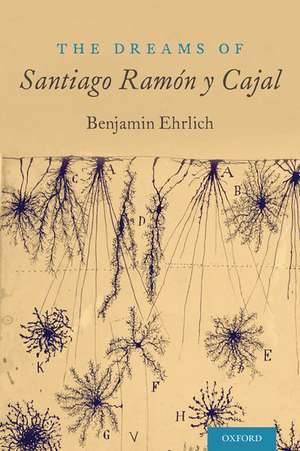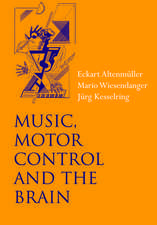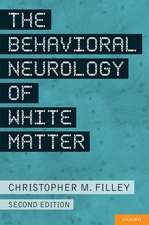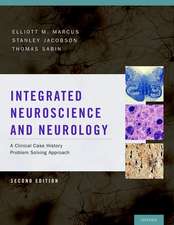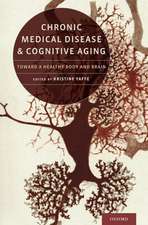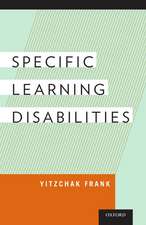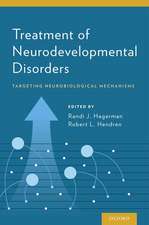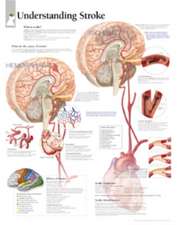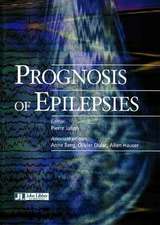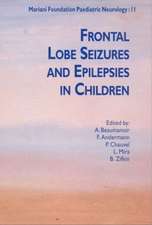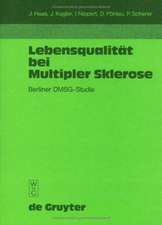The Dreams of Santiago Ramón y Cajal
Autor Benjamin Ehrlichen Limba Engleză Paperback – 19 ian 2017
the secrets of the mind. Although he ranks among the greatest scientists in history, the name of the Nobel Prize-winning father of modern neuroscience is not as well-known as that of Darwin, Pasteur, Galileo, Einstein, Copernicus, and Isaac Newton. The second half of the nineteenth century saw a revolution in the study of the mind. Cajal was a contemporary of Sigmund Freud (1856-1939), whose radical theories would scandalize the next century. Before he was a neuroanatomist Cajal conducted psychiatric experiments and before Freud became a
psychiatrist, he worked in neuroanatomy. In public, Cajal spoke respectfully about Freud, but in private, Cajal rejected the man and his theories. In order to disprove Freud's lies, Cajal started to record his own dreams in a diary, part of a notably personal book project, which he worked on from
1918 until his death in 1934. For reasons unknown, Cajal never published this work. Until recently, it was assumed that the manuscript had been destroyed during the Spanish Civil War. The Dreams of Santiago Ramn y Cajal is this lost dream diary, translated into English for the first time. The text is accompanied by an introduction to the life and work of Cajal, his relationship with the famed Viennese psychoanalyst, and the historical context surrounding the contributions of two
great dueling intellects.
Preț: 318.26 lei
Preț vechi: 419.72 lei
-24% Nou
60.91€ • 66.14$ • 51.16£
Carte tipărită la comandă
Livrare economică 11-17 aprilie
Specificații
ISBN-10: 0190619619
Pagini: 160
Dimensiuni: 234 x 155 x 15 mm
Greutate: 0.27 kg
Editura: Oxford University Press
Colecția OUP USA
Locul publicării:New York, United States
Descriere
The Spanish anatomist Santiago Ramn y Cajal (1852-1934) explored the microscopic world of the brain and found a landscape inhabited by distinctly individual cells, later termed neurons. The mysterious butterflies of the soul, he called them, whose beating of wings may one day reveal to us
the secrets of the mind. Although he ranks among the greatest scientists in history, the name of the Nobel Prize-winning father of modern neuroscience is not as well-known as that of Darwin, Pasteur, Galileo, Einstein, Copernicus, and Isaac Newton.
The second half of the nineteenth century saw a revolution in the study of the mind. Cajal was a contemporary of Sigmund Freud (1856-1939), whose radical theories would scandalize the next century. Before he was a neuroanatomist Cajal conducted psychiatric experiments and before Freud became a
psychiatrist, he worked in neuroanatomy. In public, Cajal spoke respectfully about Freud, but in private, Cajal rejected the man and his theories. In order to disprove Freud's lies, Cajal started to record his own dreams in a diary, part of a notably personal book project, which he worked on from
1918 until his death in 1934. For reasons unknown, Cajal never published this work. Until recently, it was assumed that the manuscript had been destroyed during the Spanish Civil War.
The Dreams of Santiago Ramn y Cajal is this lost dream diary, translated into English for the first time. The text is accompanied by an introduction to the life and work of Cajal, his relationship with the famed Viennese psychoanalyst, and the historical context surrounding the contributions of two
great dueling intellects.
Notă biografică
Benjamin Ehrlich is a Salzburg Global Fellow. His work has appeared in Nautilus and New England Review. He is a Co-Founding Editor of The Beautiful Brain, an online magazine devoted to art and neuroscience. Ben graduated from Middlebury College with Highest Honors in Literary Studies.
